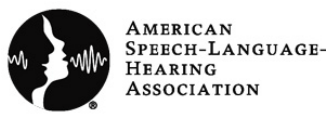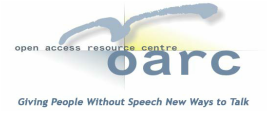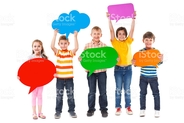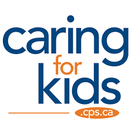Speech-Language Pathologist Resources
When You Should See A Speech-Language Pathologist
Speech-Language Pathologists help with speech development and language development. For parents, it can be hard to know if your child's speech or language is progressing at the pace it should. When children first learn to speak, it is natural for it to be hard to understand. It is also natural for children to take some time to grow their vocabulary. However, if they continue to struggle, how do you know when to seek help?
Parents often have an intuition about things, so if something doesn’t feel right, it never hurts to consult with a professional. The biggest sign that you should seek help is a lack of consistent improvement. This would be when your child’s development seems to have stopped and you aren’t noticing any advancement in their language.
By age 2 Your child should be talking. By age 3 most of what your child says should be fairly easy to understand. If not, it is good to see a professional.
Other Signs to See a Speech-Language Pathologist
- Mispronounces vowels – ex coo instead of cow.
- Omits consonants completely, like saying ‘a’ for cat and ‘o’ for dog.
- Uses one sound or syllable to label most things.
- Uses a word once, but then doesn’t use it again.
- Doesn’t point to things, so when you point out a cat, the child can say the word cat but doesn’t point at it.
- Doesn’t get frustrated when you don’t understand.
- Doesn’t answer questions, but repeats the question. For example when you ask, do you want a cookie, the child responds cookie, rather than yes.
- Doesn’t react to games like peek-a-boo.
- Doesn’t learn to say bye-bye.
- Ignores or reacts strongly to sounds such as not responding when their name is called, or being overly sensitive to some environmental noises
- Speaks only in single words without attempting sentences.
- Seems to be struggling to express what they want to say, like they know what they are thinking but can’t tell you.
- Has a hoarse voice
- Stutters - repeats consonants or prolongs sounds
- Their social skills seem to be behind their peers so they struggle to interact with children during play, with turn taking, and have difficulty understanding vocal tone, facial expressions etc.
Disorders Our Speech-Language Pathologist Treats

Language Delays and Disorders: this includes expression and comprehension in oral and non-verbal contexts, as well as developing a vocabulary and anxiety issues (selective mutism).
Hearing Screening and Auditory Processing Disorders: Hearing problems as well as the problems in processing what the ear hears (auditory processing disorder).
Speech Fluency: including stuttering.
Hoarse Voice or Voice Loss: In a voice disorder, your child’s voice may sound harsh, hoarse or they may have ‘lost’ their voice entirely.
Voice Resonance (sound): Resonance disorders effect the sound of a person’s speech – for example, it may be very nasal sounding.
Cognitive-Communicative Disorders: including social communication skills, reasoning, problem solving and executive functions.
Pre-reading and Reading Skills: including awareness of sounds in speech (phonological awareness), decoding, reading, comprehension and writing (including grammar issues).
To get a sense of what a typical Speech Language Pathology
Session May Look Like, Check Out These Videos.
Various Helpful Speech-Pathology Organizations

What do Speech Language Pathologists Do?
If you are looking for more information on the role of the Speech-Language Pathologist and how they can support you or your child, this is an excellent resource.

The College of Audiologists and Speech-Language Pathologists of Manitoba
The College of Audiologists and Speech-Language Pathologists of Manitoba is the governing body for all Manitoba practitioners. They provide information on qualifications, mission and regulations for professionals in the field.

American Speech-Language-Hearing Association
Here you will find some excellent information about hearing and hearing loss, assistive technologies, as well as information on speech language development and disorders.

Communication Devices
The Open Access Resource Centre provides specializes in supporting those who use assistive communication devices. They provide technology, training and resources.

Kids Activities
A great resource for printable crafts, colouring pages, worksheets and activities for kids.

Speech Language Index
This page has several links to in depth information regarding speech and language development in children.

Promoting Literacy from Birth
This page has great resources for parents who want to help their children develop speaking and reading skills
